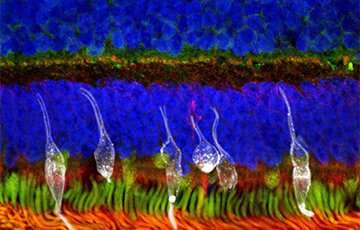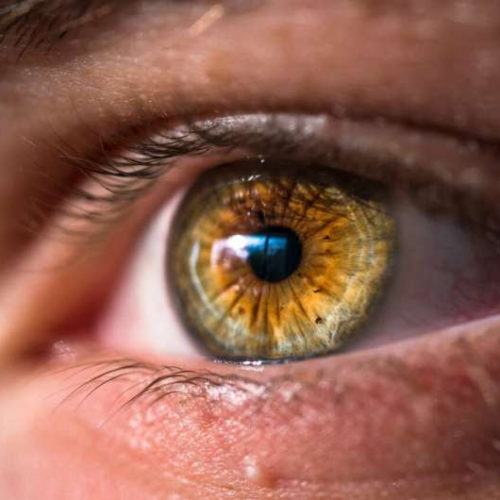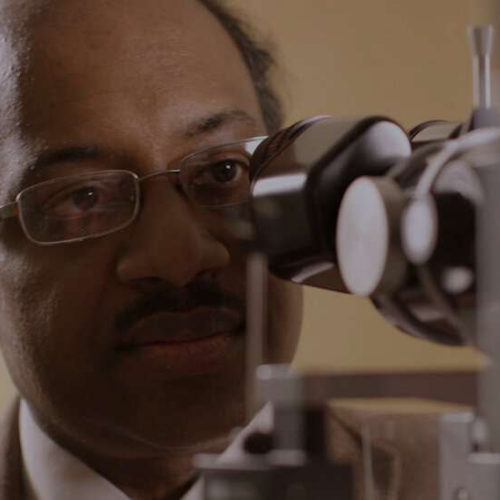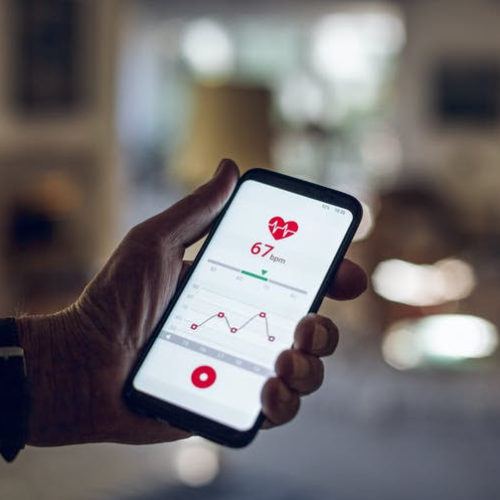by National University of Singapore Retinal progenitor cells derived from RxCell induced pluripotent stem cells (iPSCs) can mature into retina photoreceptors after transplantation into the preclinical models, enabling restored vision. Credit: NUS Yong Loo Lin School of Medicine. Inherited retinal diseases (IRDs) are a group of genetically and clinically homogeneous illnesses characterized by progressive retinal damage...
Tag: <span>Vision loss</span>
A Gene-Editing Experiment Let These Patients With Vision Loss See Color Again
ROB STEIN Carlene Knight, who has a congenital eye disorder, volunteered to let doctors edit the genes in her retina using CRISPR.Franny White/OHSU Carlene Knight’s vision was so bad that she couldn’t even maneuver around the call center where she works using her cane. “I was bumping into the cubicles and really scaring people that...
Alzheimer’s disease proteins could be at fault for leading cause of vision loss among older people
by University of Southampton Credit: Unsplash/CC0 Public Domain Newly published research has revealed a close link between proteins associated with Alzheimer’s disease and age-related sight loss. The findings could open the way to new treatments for patients with deteriorating vision and through this study, the scientists believe they could reduce the need for using animals in future research into blinding...
Common HIV drugs may prevent leading cause of vision loss, study finds
by University of Virginia Jayakrishna Ambati, MD, and his collaborators have identified a group of drugs that may help stop a leading cause of vision loss after making an unexpected discovery that overturns a fundamental belief about DNA. Credit: UVA Health Scientists have identified a group of drugs that may help stop a leading cause of...
New at-home heart monitoring technique could reduce hospital visits and save lives
by Ben Robinson, University of Manchester A simple new heart-monitoring technique has been developed to help people self-monitor their conditions at home without the need for hospital visits. University of Manchester researchers have developed a simple technique that allows people to monitor their own electrocardiogram (ECG) for a potentially life-threatening condition. Previously people needed to...
A telehealth researcher explains how to get the most out of remote health care
COVID-19 has led to a boom in telehealth, with some health care facilities seeing an increase in its use by as much as 8,000%. This shift happened quickly and unexpectedly and has left many people asking whether telehealth is really as good as in-person care. Over the last decade, I’ve studied telehealth as a Ph.D....
Exercise can slow or prevent vision loss, study finds
EXERCISE CAN SLOW OR PREVENT THE DEVELOPMENT OF MACULAR DEGENERATION AND MAY BENEFIT OTHER COMMON CAUSES OF VISION LOSS, SUCH AS GLAUCOMA AND DIABETIC RETINOPATHY, ACCORDING TO NEW RESEARCH FROM… view more CREDIT: DAN ADDISON | UVA COMMUNICATIONS Exercise can slow or prevent the development of macular degeneration and may benefit other common causes of...
Team examines the link between cognition and hearing or vision loss
by Concordia University There is a long-established and widely recognized link between declines in sensory acuity—particularly hearing and vision—and cognition. Data from the Canadian Longitudinal Study on Aging (CLSA), involving tens of thousands of participants across the country aged 45 to 85, backs this up. A recent study led by Montreal researchers asks why this...
Unhealthful diet linked with vision loss later in life
A new study spanning nearly 2 decades has found a link between an unhealthful diet and vision loss in older age. Should we be keeping more of an eye on what we eat? A diet rich in fats and red meat may contribute to AMD. A robust body of research has shown that a diet...
Fatty diets tied to leading cause of vision loss in seniors
by Serena Gordon, Healthday Reporter (HealthDay)—Diets heavy in red meat and fatty foods could help spur a leading cause of vision loss in older Americans, new research suggests. The study found that people who ate more typical Western diets were three times more likely to develop an eye condition that robs you of your central...








